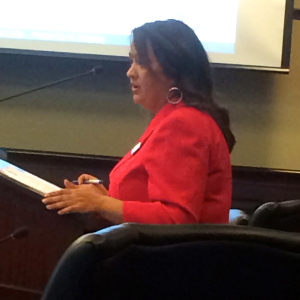
The state is “exploring all opportunities” to keep broadband in the state’s high schools, Administration Department Director Teresa Luna said Thursday.
But the future of the Idaho Education Network will be decided in the courtroom and legislative chambers, or both.
At stake is a popular but embattled broadband network: popular because it has linked Idaho’s high schools and brought new learning opportunities to rural schools; embattled because its $60 million contract has been the subject of five years of litigation.
The latest legal motions
The network’s future was thrown into turmoil on Nov. 10, when District Judge Patrick Owen declared the network contract null and void. When the state cut Syringa Networks out of the contract, that tainted the entire deal — and now, he says, the contract cannot be salvaged.
For schools, the worst-case scenario is far-reaching. Without a contract, high schools will no longer be able to offer virtual and dual-credit classes — after students and parents have paid fees for dual-credit offerings. Computerized testing will fall by the wayside. School districts, which saw their operational dollars cut during the recession, do not have the money to replace the network.
The implications even extend beyond the classroom, since the contract also covers high-speed Internet for state agencies. The Department of Health and Welfare uses the network to administer public assistance programs, for instance, while the Department of Fish and Game uses the network to process hunting licenses.
Consequently, the state wants to know what Owen really meant. The state’s hired attorneys filed a motion Tuesday asking Owen to clarify his ruling — or reconsider it.
The motion doesn’t sit well with two state senators who have a key role in this debate.

“I’m a little frustrated, quite frankly,” said Sen. Shawn Keough, R-Sandpoint. “It just seems like this is just another chapter in legal maneuvering, as opposed to solving the problem.”
Sen. Dan Schmidt, D-Moscow, doesn’t think Owen will be persuaded. “I think the odds of that are pretty low.”
Keough and Schmidt sit on the Program Resource Advisory Council, a panel of lawmakers and state and school officials that oversees the network. The council, better known as IPRAC, will meet Friday to discuss the case.
Keough and Schmidt both think the state should get out of the courtroom. Keough believes the 2014 Legislature sent a clear message; lawmakers bailed out the network to the tune of $11.4 million, but instructed the state to negotiate with Syringa. “Apprarently, that message didn’t get through.”
Schmidt wants the state to start over, rebidding the contract.
Mediation remains an option, Luna said Thursday. The same goes for rebidding the contract.

Not everybody on IPRAC is ready to give up the case. House Education Committee Chairman Reed DeMordaunt says Owen got the ruling wrong, so he supports the latest motion.
“I think it’s a good move, just in terms of getting the required clarification.”
Going it alone?
While the 5-year-old lawsuit continues to course its way through the courts, lawmakers will once again have to make some difficult decisions about funding the Idaho Education Network.
For lawmakers, that means a repeat of the 2014 session.
Legislative budget-writers were caught off-guard in January, when Luna told them they would have to come up with money to keep the network afloat. With the network contract still embroiled in litigation, a Federal Communications Commission contractor had cut off payments to the state. These “E-Rate” payments, surcharges from telephone bills, had supplied 75 percent of the network’s budget.
The $11.4 million was designed to fill the void — but keep the network online only through February. Lawmakers wanted to give themselves a chance to review the situation at the start of the 2015 session.
There will be plenty to discuss. They will be asked to consider another payment, probably in the $2.2 million range, to cover the network through June 30, the end of the 2014-15 budget year. Then comes 2015-16, when the stakes will be higher. It could cost anywhere from $2.74 million to $9.46 million to stay online, depending on what happens to E-Rate payments.
No one seems to be talking about yanking broadband from the high schools. It seems inevitable that some tax dollars will go into this system, now and into the future.
But DeMordaunt, R-Eagle, says the funding debate may be different next session. In 2014, lawmakers were willing to plug the hole in the budget, and assume the E-Rate money would start flowing again. In 2015, lawmakers may begin to contemplate what kind of network the state can afford, if it goes it alone.
“I think you have to have that discussion,” said DeMordaunt, who emphasizes that he wants to keep the network online.
The Administration Department isn’t contemplating cutbacks, said Luna. “We’re committed to providing the same service tomorrow that we are providing today.”

And one key player — in the legal and budgetary process — is Gov. Butch Otter. Re-elected to a third term earlier this month, Otter touts the broadband network as a milestone in improving rural education. But the architect of the disputed contract was Otter confidante Mike Gwartney, Luna’s predecessor at the Administration Department.
What does Otter want? He isn’t saying. He declined interview requests this week.
“The governor is out of the state at the moment at (a Republican Governors Association conference) and as you know this issue is still playing out in the courts,” Otter spokesman Jon Hanian said Thursday. “He is not going to comment while that process is still under way.”
